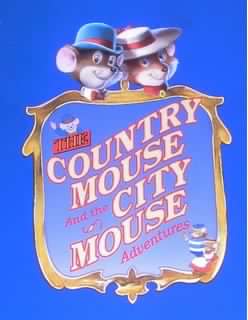Hamilton321
Prince
America is currently a country which is deeply divided culturally and politically, in some ways more divided than it has ever been. This is really a trend which has been going on ever since the fifties which was the last time of great unity within this country. My personal opinion is that while this is a complex issue that the main reasons are the following, not listed by importance or prevalence just what came to my mind:
#I generational, the baby boomers and generations x and y are and were much more likely to become activists or form protests or become radical leftists or far-righters or to create some form of cultural work even if it is something simple (like fanfiction) than the generations dominant during the fifties. For those of you who don't study generational theory and who don't know which generations were dominant in the fifties there were two, the greatest generation in its adult years and the silent generation in its early adult, adolescent and for the youngest of them late childhood years. The greatest generation was known for being very conciliatory in everything it did and both generations were recovering from trauma from the crises of the thirties and forties.
As children the silent generation had much of its creativity and curiosity beaten out of them as children by both the turmoil and by the way they were raised so they produced very little in terms of culture compared to other generations and pretty much adopted the culture of their greatest generation parents. These generations were not ones to produce political and cultural change.
#II I think that the decline of a strong political and cultural center has also contributed to the division. Politically I'd say that there currently is no center. Both sides are very far away from each other and the rise of the far right has taken away all of the remaining points of agreement like nothing in an already politically tense era since the original rise of the Republican party back in the 1850s. I personally believe that this has been brought out by the drastic nature of the two great political swings of the late twentieth century i.e. the shift to the left on economic and social in the sixties that was continued into the seventies and was stopped in the eighties and the shift to the right on economic issues that continued into the nineties and was stopped in the 2000s.
I apologize for the length of this post and I hope that I have made this clear enough for you to understand what I am saying. Comments, discussion, criticism and questions are welcome. I have more to say on this and plan to continue in future posts.
#I generational, the baby boomers and generations x and y are and were much more likely to become activists or form protests or become radical leftists or far-righters or to create some form of cultural work even if it is something simple (like fanfiction) than the generations dominant during the fifties. For those of you who don't study generational theory and who don't know which generations were dominant in the fifties there were two, the greatest generation in its adult years and the silent generation in its early adult, adolescent and for the youngest of them late childhood years. The greatest generation was known for being very conciliatory in everything it did and both generations were recovering from trauma from the crises of the thirties and forties.
As children the silent generation had much of its creativity and curiosity beaten out of them as children by both the turmoil and by the way they were raised so they produced very little in terms of culture compared to other generations and pretty much adopted the culture of their greatest generation parents. These generations were not ones to produce political and cultural change.
#II I think that the decline of a strong political and cultural center has also contributed to the division. Politically I'd say that there currently is no center. Both sides are very far away from each other and the rise of the far right has taken away all of the remaining points of agreement like nothing in an already politically tense era since the original rise of the Republican party back in the 1850s. I personally believe that this has been brought out by the drastic nature of the two great political swings of the late twentieth century i.e. the shift to the left on economic and social in the sixties that was continued into the seventies and was stopped in the eighties and the shift to the right on economic issues that continued into the nineties and was stopped in the 2000s.
I apologize for the length of this post and I hope that I have made this clear enough for you to understand what I am saying. Comments, discussion, criticism and questions are welcome. I have more to say on this and plan to continue in future posts.


